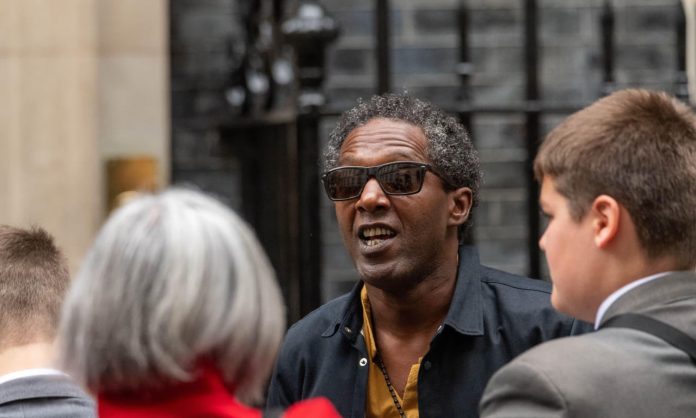Musicians, authors, producers, and festival managers spoke out against “humiliating” and costly visa refusal for African and Asian artists, according to The Guardian.
They argue that this has a chilling effect on cultural diversity. Analysis revealed that last year the UK collected £44 million in fees for visa applications that were then rejected, mostly from low- and middle-income countries. The EU, meanwhile, earned €130 million (£110 million).
Overall costs are likely to increase in 2024, as the standard application fee for a short-term visitor visa in the UK rose from £100 to £115 in October 2023. In the EU, visa fees rose from €80 to €90 in June this year.
Lesley Lokko, a Ghanaian-Scottish author and architect, called the non-refundable fees “outrageous.” She noted that they were mostly paid by those who could least afford them.
African visitors were disproportionately affected, with visa refusal rates as high as 40-70 per cent, according to analysis by arts and migration research group Lago Collective.
Meanwhile, Lemn Sissay, a British poet and broadcaster, claimed that disproportionate denials of UK and EU visas for African and Asian visitors were part of a campaign to “delegitimise or shame” people of colour.
The idea is that you are not welcome. It has become a serious problem.
The analysis shows that EU visa refusal rates from countries, such as Nigeria, Ghana, and Senegal, are as high as 40-47 per cent. In the UK, Algeria has the highest visa refusal rate (71 per cent). This is followed by Bangladesh (53 per cent), while Ghana, Pakistan, and Nigeria have denial rates of between 30 per cent and 46 per cent.
Visa issuance crisis
In March, the UK Home Office refused visas to 47 members of the Portugal-based Afghan Youth Orchestra, days before their tour of England was due to begin with a concert at London’s Southbank Centre. Outrage forced a U-turn, with visas later granted to the Afghan musicians, aged between 14 and 22.
The musicians, who were granted residency in Portugal after fleeing the Taliban, have previously performed in Italy, France, Switzerland, and Germany.
[The world] is open for Europeans, but those from Africa, the Middle East, and Asia are second-class citizens.
Emma Nzioka, a producer and DJ from Nairobi known as Coco Em who is due to play at Glastonbury next week, revealed that applying for a UK or EU visa was so difficult, expensive, and unequal that she felt ready to quit touring.
The Kenyan missed a show in Poland, as she could not get a Schengen visa appointment in time. She made it to her gig at Barcelona’s Sónar festival last weekend with an hour to spare after getting a last-minute EU visa.
It costs $2,000 [£1,600] in flights and for a UK visa. I paid $290 in health insurance. I get paid $150 per show. It’s not worth it.
Meanwhile Donald Shaw, director of Celtic Connections, a Scottish music festival, claimed it was becoming increasingly difficult to persuade international musicians to come to the UK. Last year Shaw invited Trio Da Kali, a group of griot musicians from Mali, to perform with Gaelic singers in Scotland. Despite help with applications, only two of the trio, including Hawa Kasse singer Mady Diabaté, were granted visas.
As a festival director, it’s a real challenge to persuade artists to come back, because I know the pain of getting a visa. Part of the renaissance in folk and traditional music over the past 30 years in Scotland has been the opportunity to enjoy music of west Africa, India and Pakistan. But it is getting harder and harder.
According to Deborah Annetts, of the Independent Society of Musicians, the system harmed the UK music scene and needed to be changed. However, a Home Office spokesperson stated:
All visa applications are carefully considered on their individual merits in accordance with the immigration rules.
